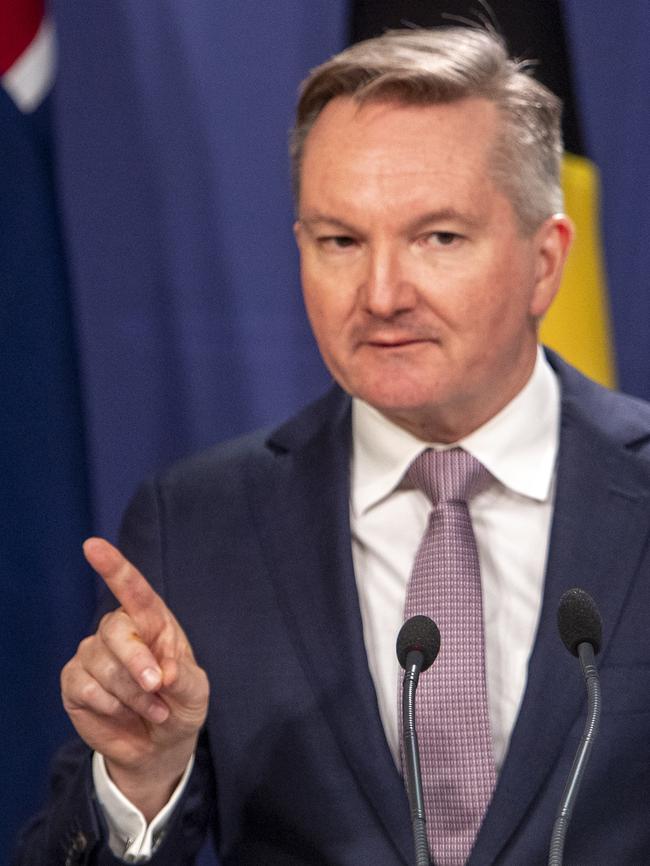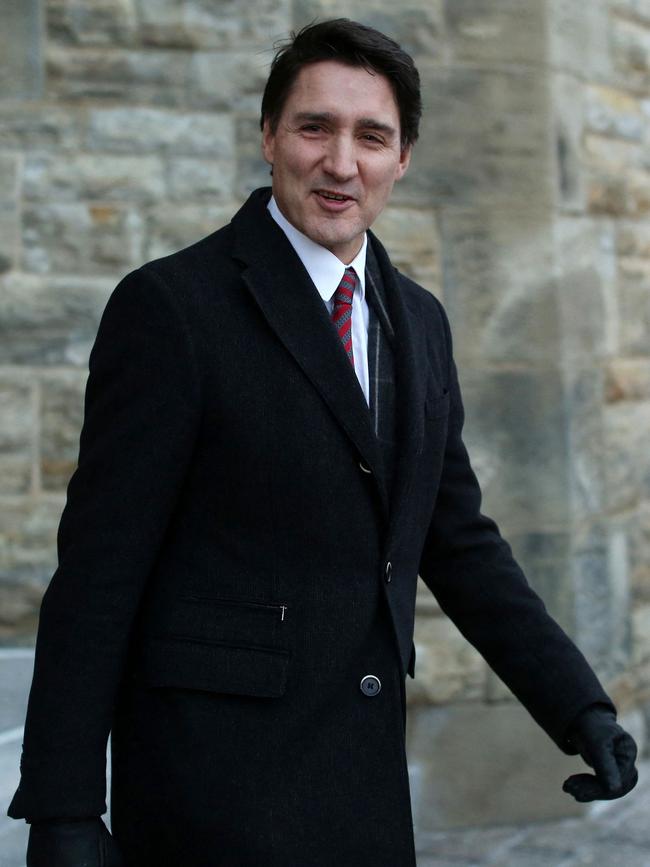
“Why Trump won’t win,” Hussein Ibish wrote in The Atlantic last December. “Biden will beat Trump, and Kamala Harris will play a huge role,” predicted Juan Williams in The Hill at the start of January.
“Trump is really going for a particular kind of voter,” Waleed Aly told Channel 10 viewers. “The problem he has is that they are not people who typically turn out and vote.”
Forecasts tell us more about the conceit of commentators than they do about the future.
So, at the risk of beclowning myself in the style of Ibish, Williams and Aly, I’m setting out the following sure-fire predictions for 2025.
1. Global coal production will hit a record high in defiance of the International Energy Agency’s 2015 assertion that the world had reached peak coal.
2. Black coal production in Australia will provide 10,580 petajoules of energy next year, a reduction of 0.88 per cent, the average fall over the past decade. Most of it will be exported.
3. Solar energy will generate 178PJ, and wind energy will generate 130PJ if this decade trend continues. None of it will be exported. Energy Minister Chris Bowen’s dream of a renewable energy superpower will be put on hold for another year.

4. The Australian Public Service will keep growing, as it has done every year since approximately 1788. If the 15-year trend continues, we’ll be paying more than 2.5 million public service salaries by next Christmas across three levels of government, up from 1.8 million in 2009.
5. The most significant growth will be in public administration and safety, where 14,780 new jobs will be created if the 15-year trend is maintained. The second-most significant increase will be in healthcare and social assistance, including the NDIS (13,850 new jobs), followed by education (11,830 new jobs).
6. Outside Victoria, the fastest growth will be in the commonwealth public service, which will grow by 3.5 per cent compared to a 2.3 per cent rise in state and territory government employees. In Victoria, the opposite applies. Judging by the 15-year trend, the ranks of the Victorian public service will expand by 11,700 employees or 3.8 per cent.
7. Two out of three Australians will not watch ABC TV broadcasts for five consecutive minutes or longer in an average week. Australia’s population has increased by 23 per cent over the past 15 years, while the size of ABC TV’s broadcast reach has shrunk by 86 per cent.
8. Twice as many people will watch ABC on YouTube than over the airwaves, casting doubt on the retention of the word “broadcasting” in the organisation’s name. Hits on ABC’s YouTube channel increased by 350 per cent in the past five years, while broadcast audiences have fallen by 20 per cent. This begs the question: Why are taxpayers spending $190m a year to run energy-intensive transmitters?
9. Benjamin Netanyahu will accomplish the goal he announced back on October 9, 2023, by changing the balance of power in the Middle East. Iran’s influence will stop at Israel’s borders and Ayatollah Ali Khamenei will be glancing nervously at his pager.

10. Incoming US president Donald Trump will reinvigorate negotiations to bring Saudi Arabia into the Abraham Accords, normalising relations with Israel and raising hopes of restarting the process leading to the two-state agreement with the Palestinians that seemed all but dead this time last year. But Netanyahu and Trump won’t be honoured with the Nobel Peace prizes they deserve.
11. Iran’s demise, Russian exhaustion and the inauguration of Trump will be serious setbacks for the Axis of Evil. China’s hand will be weakened. With the cards stacked in his favour, Trump will seek a deal with Vladimir Putin to end the war in Ukraine.
12. In February, German voters will throw out the hapless, ineffective and ideologically mismatched coalition government led by Chancellor Olaf Scholz and elect a hapless, ineffective and ideologically mismatched coalition led by Christian Democratic Union leader Friedrich Merz. The European Union’s 2025 growth forecast of 0.7 per cent for the German economy will be exposed as hopelessly optimistic.
13. Germany’s wind turbines will operate at between 20 and 25 per cent of their full capacity next year. They will generate a meagre 110 TWh of electricity. When this power will be produced is impossible to predict.

14. Sales of electric vehicles will overtake conventional vehicles in China, where EV sales have been rising at 20 per cent a year thanks to aggressive targets, subsidies and regulations. In the free world, however, EV sales will plateau. In June, researcher company Jeffries slashed its 2030 forecast for EV sales in the European Union from 8.9 million to 6.8 million. In November, it downgraded its forecast further to 4.7 million.
15. Alexander Lukashenko will be elected president of Belarus on January 26, as he has been at every election since 1994. The Australian government’s travel advice will remain in place. It reads: “If you’re in Belarus, leave immediately.”
16. Canada, by contrast, will become the second-most attractive destination in North America with the ignominious defeat of Justin Trudeau’s joke government. Pierre Poilievre’s Conservatives are the second safest political bet on offer, Lukashenko being number one.
17. In Australia, Labor will record its lowest primary vote for at least 122 years. Albanese’s 32.6 per cent primary vote in 2022 was the second-lowest since Federation. The average swing against governments seeking a second term since World War II is 3.3 per cent, which would push Labor’s primary vote below 30 per cent for the first time since 1903.

Even so, the historical trend suggests Peter Dutton won’t win the next election. The post-war average two-party swing of 1.3 per cent won’t be enough. The Coalition needs to win 19 seats to form a majority in the House of Representatives. The average number of seats gained by an opposition taking on a one-term government is eight.
But past results offer no guarantee of future performance. Forecasters must beware of hindsight bias, the tendency to view past events as more predictable than they were.
They must resist falling for the gambler’s fallacy: The belief that past events influence the likelihood of future events in random processes. They must resist overconfidence bias, the hubristic tendency to overestimate one’s ability to predict accurately and underestimate uncertainty or randomness.
18. On this basis, I confidently predict that the Coalition will be back in government by Christmas. However, which Christmas that will be is far too early to say.




Forecasting is an inexact science. Writers who succumb to the seasonal temptation of turning to the crystal ball for inspiration can expect to dine on broken glass by the end of the year.